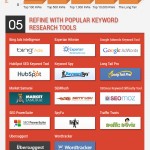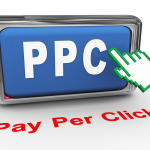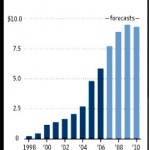Paid search campaigns on Google are a great way to scale your business and expand your reach. The best thing about paid search campaigns is that they are both highly effective and very transparent: if you pay an X amount of money for a paid campaign, you can always learn why you’re paying that particular amount.
It is generally agreed that the smartest paid search campaigns are pay-per-click (PPC) campaigns. PPC is a model in which advertisers pay a fee each time one of their ads is clicked. The best way to reduce the amount you spend on paid campaigns is by increasing your website’s quality score.
What is quality score?
Quality Score is how Google rates the quality and relevance of your keywords and PPC ads. The more relevant your ads and landing pages are to the searcher, the higher your quality score. The higher your Quality Score, the higher your ad rankings i.e, the position your ad will be displayed in on the page. And higher ad rankings means lower costs.
Your Quality Score depends on a number of factors, which you can control. They are:
-
Your Click-Through-Rate (CTR), the rate at which your PPC ads are clicked
-
The relevance of each keyword to its ad group
-
The relevance of your ad text copy
-
The relevance and quality of of your landing page, where people are sent when they click on your ad
-
Your overall historical AdWords account performance
How to increase Quality Score?
Since Quality Score is governed by factors that you can control, it is in your hands to increase it.
Here are some of the ways in which you can increase your Quality Score:
Keywords:
Research and discover new keywords that are most relevant to your ad campaigns. Split them into different groups so that they can be tagged successfully onto individual ad campaigns.
Ad Text:
Prepare ad copy that is targeted effectively towards individual ad groups. Ads that are found to be more relevant to consumers get higher CTR, one of the best ways to improve Quality Score.
Landing Pages:
You can get people to visit your website or specific landing pages but if they are not optimized to the keywords in the ad or search, it will be close, but no cigar. Adopt the best landing page practices to ensure visitors get the optimum user experience you promise.
Negative Keywords:
One of the best ways to trim your budget and make your money work for you is by undertaking continuous research from time to time and weed out irrelevant search terms that tank your budget.
“Let’s take most of the money we would’ve spent on paid advertising and paid marketing,” American tech millionaire Tony Hsieh, CEO of online clothing shop Zappos, said once, ” and instead invest it in the customer experience/customer service and then let our customers do the marketing for us through word of mouth”.
That’s as good an explanation as one can give about the importance of customer satisfaction to your website’s Quality Score. More than any other factor, the one attribute that Quality Score values is relevance. How relevant your customers find the content on your ads, keywords and landing pages determine how high your ads will be displayed and how few you’ll spend on your ad campaign.













Leave a Reply